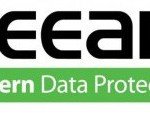This post is also available in: Italian
Reading Time: 4 minutesVeeam licenses software in a variety of ways depending on the specific product and/or use case you are interested in. This includes licensing by the number of CPU sockets on a managed server (or host), as well as by the number of VMs, physical servers, workstations, cloud instances and/or users being managed.
We can summarize the different options (not all are available, it also depends on the product):
- Free license: some products have a free license also for professional use. See for example VeeamZip or the free Agents.
- Perpetual license: Software licenses and use of the products do not expire. Usually based per socket (for example for Veeam Backup and Replication). You buy the software and you “own” your licensed copy. But you may need also the support.
Note that one year of basic support and maintenance is included with any new perpetual license purchased and you need to stay current on maintenance to get product updates and new major versions, access to technical support, access to license keys management portal (you won’t be able to manage and download license keys if your maintenance expires). - Subscription license: Subscription licensing allows customers to lower upfront costs while licensing over a defined period of time. Software licenses and use of the products expire at the end of the subscription term and include production 24×7 support.
One to five-year subscription licenses are available, and customers can choose to purchase the entire subscription up front, or pay annually. At the end of the license period, both the use of the product as well as support will be turned off. Customers can choose to purchase a new subscription license at the then-current rate to continue use.
This model could be licensed per instance (for example for the different Agents), but also based on other parameters. - Hosting Rental: Veeam Cloud & Service Provider program members can rent products on a monthly basis. A one-year commitment may be required. For more information, please visit the VCSP page.
This license model could be based per VM, for example for the Backup as a Service solution.
Historically the first commercial model used by Veeam was the perpetual license based per socket (initially with also some core limitation). But with the Cloud edition of Veeam Backup & Replication (an edition no more available), they have started also to explore a subscription-based model, now widely, for example for the different Veeam Agents.
Finally, Veeam has launched a huge product licensing change: a per-VM licensing option not limited to the “as a service model”.
The per-socket model was good for several customers because they did not need to worry about the number of VMs they are protecting. But in certain edge cases, such as SMB or ROBO environments, this was not a very good deal… considering the ROBO case, a customer may have two nodes with 4 sockets (or maybe just single server socket) but only a few VMs on each site. VMware has specific SKU for ROBO (per VM based), but Veeam no!
For the SMB, Veeam has the Essential bundles, but sometimes (for a small environment) it could be not so good and a cloud as a service offer maybe could be not an option.
But note that per-VM option for end users is only for the subscription licensing. You can select any number of VMs – which, unlike with per-socket license, you CAN exceed slightly – and there are 1 to 5-year subscription licenses available with significant discounts on a longer subscription, also depending on how you purchase.
An interesting big benefit of subscription licenses is that they already include Premium 24×7 support – whereas with perpetual licenses, you need to pay on-going support and maintenance fees every year.
For more information see:





